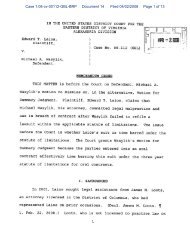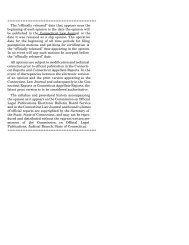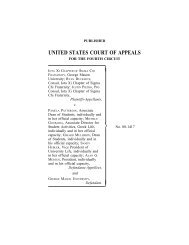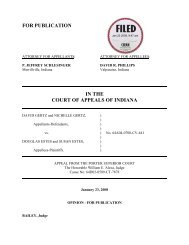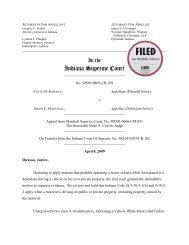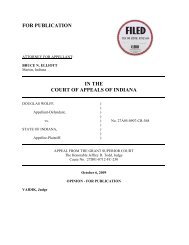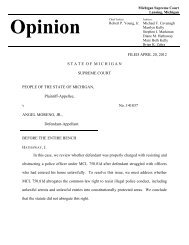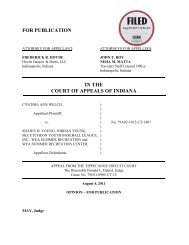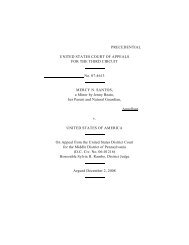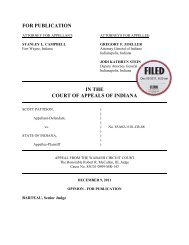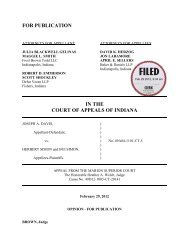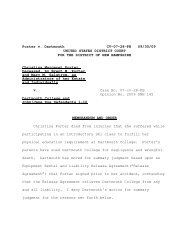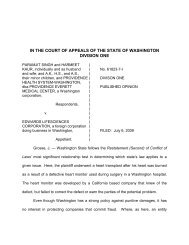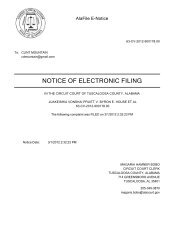IN THE COURT OF APPEAL OF THE STATE OF ... - FindLaw
IN THE COURT OF APPEAL OF THE STATE OF ... - FindLaw
IN THE COURT OF APPEAL OF THE STATE OF ... - FindLaw
Create successful ePaper yourself
Turn your PDF publications into a flip-book with our unique Google optimized e-Paper software.
Dee has forfeited the argument that the court erred in excluding articles<br />
supporting her fear of cancer, because she provides no legal argument and fails to<br />
explain why she believes the articles were admissible. (People v. Stanley, supra,<br />
10 Cal.4th at p. 791 [court may treat as waived argument that is unsupported by<br />
legal authority]; Placer County Local Agency Formation Com. v. Nevada County<br />
Local Agency Formation Com. (2006) 135 Cal.App.4th 793, 814 [“We need not<br />
address points in appellate briefs that are unsupported by adequate factual or legal<br />
analysis”]; Badie v. Bank of America (1998) 67 Cal.App.4th 779, 784-785 [failure<br />
to support contention with reasoned argument and citations to authority results in<br />
waiver].)<br />
Moreover, on the merits we find no abuse of discretion in the trial court‟s<br />
conclusion that the articles should be excluded under Evidence Code section 352. 13<br />
None of the articles linked cancer to any mycotoxin found in unit 307, and most of<br />
the articles did not even discuss cancer.<br />
Dee has also forfeited her claim of instructional error. Her entire argument<br />
consists of the following statement: “On April 26, 2005, the court improperly<br />
refused to allow CACI Nos. 1601, 1602, and 1603 (Intentional Infliction of<br />
Emotional Distress. [Fear of Cancer]. This was clearly improper and contrary to<br />
“(c) Whether [name of defendant] knew that [his/her] conduct would likely result<br />
in harm due to mental distress.”<br />
12<br />
CACI No. 1603 provides: “ [Name of defendant] acted with reckless disregard in<br />
causing [name of plaintiff] emotional distress if:<br />
“1. [Name of defendant] knew that emotional distress would probably result from<br />
[his/her] conduct; or<br />
“2. [Name of defendant] gave little or no thought to the probable effects of<br />
[his/her] conduct.”<br />
13<br />
The trial court explained: “We are not going to use a group of articles with no<br />
foundation, no background to get before the jury the contents of these. These are<br />
hearsay, you know they are hearsay, and I know it.”<br />
22



